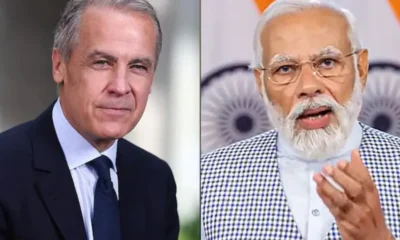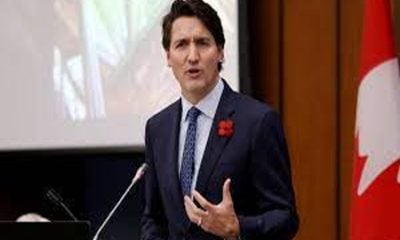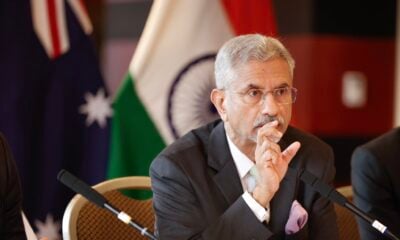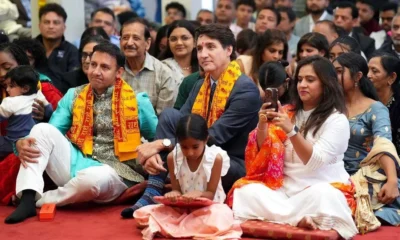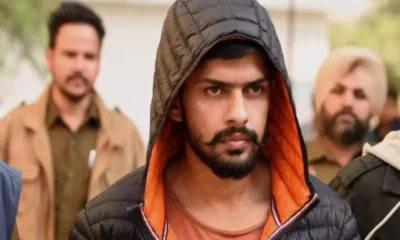The Ministry of External Affairs on Monday issued a strongly-worded statement over Canada’s charge that the Indian High Commissioner and other diplomats are persons of interest linked to a murder investigation, calling it preposterous imputations. Criticizing the Justin Trudeau government for smearing India as part of its vote bank politics, the MEA said that it now reserved the right to take further steps in response.
India and Canada ties worsened in September last year when Canadian Prime Minister Justin Trudeau alleged Indian government agents involvement in the killing of Khalistani terrorist Hardeep Singh Nijjar on Canadian soil. India had rejected those charges as motivated and absurd. However, the diplomatic row took a fresh turn recently when Canada named Indian High Commissioner Sanjay Kumar Verma as a person of interest in its investigation into Nijjar’s killing.
Issuing a scathing statement today, the Ministry of External Affairs said the Canadian government did not share a shred of evidence of India’s involvement in Nijjar’s killing despite repeated requests and accused Trudeau of doing vote bank politics and not doing enough to tackle separatist elements on Canadian soil.
The statement read that the Indian government received a diplomatic communication from Canada yesterday suggesting that the Indian High Commissioner and other diplomats are persons of interest in a matter related to an investigation in that country. The MEA in its statement clarified that the Indian government strongly rejects these preposterous imputations and ascribes them to the political agenda of the Trudeau Government that is centered around vote bank politics.
The statement claimed that since Prime Minister Trudeau made certain allegations in September 2023, the Canadian government has not shared a shred of evidence with the Government of India, despite many requests from our side. It added that this latest step follows interactions that have again witnessed assertions without any facts, and leaves little doubt that on the pretext of an investigation, there is a deliberate strategy of smearing India for political gains.
The government also pointed to the long evidence of Trudeau’s hostility to India, saying his 2018 visit to India was aimed at currying favour with a vote bank, rebounded to his discomfort.
The statement further stated that Trudeau’s Cabinet has included individuals who have openly associated with an extremist and separatist agenda regarding India. The Canadian Prime Minister’s naked interference in Indian internal politics in December 2020 showed how far he was willing to go in this regard, that his government was dependent on a political party, whose leader openly espouses a separatist ideology vis-a-vis India, only aggravated matters, it continued. The MEA was referring to Canada’s New Democratic Party leader Jagmeet Singh, whose party pulled out of Trudeau’s government.
The government asserted that the Trudeau administration deliberately flagged India as an issue to mitigate the damage, asserting that Canada faced criticism for turning a blind eye to foreign interference in Canadian politics.
The statement said that the recent development targeting Indian diplomats is the next step in that direction. It is no coincidence that it takes place as Prime Minister Trudeau is to depose before a Commission on foreign interference. It also serves the anti-India separatist agenda that the Trudeau Government has constantly pandered to for narrow political gains, it added.
The MEA underlined the Trudeau government’s constant support to violent extremists and terrorists to harass, threaten and intimidate Indian diplomats in Canada, mentioning these were done in the name of freedom of speech.
The statement asserted that the Trudeau government has consciously provided space to violent extremists and terrorists to harass, threaten and intimidate Indian diplomats and community leaders in Canada, including death threats to them and to Indian leaders. All these activities have been justified in the name of freedom of speech, it mentioned.
Furthermore, the statement also claimed that some individuals who have entered Canada illegally have been fast-tracked for citizenship. It said that multiple extradition requests from the Government of India in respect of terrorists and organised crime leaders living in Canada have been disregarded.
The MEA said that High Commissioner Sanjay Kumar Verma is India’s senior most serving diplomat with a distinguished career spanning 36 years. Sanjay Kumar Verma has been Ambassador in Japan and Sudan, while also serving in Italy, Turkiye, Vietnam and China. The Ministry said that the aspersions cast on the High Commissioner by the Government of Canada are ludicrous and deserve to be treated with contempt.
The government stated that it took note of the activities of the Canadian High Commission in India, which it said served as the political agenda of the Trudeau government. It concluded that India now reserves the right to take further steps in response to these recent efforts of the Canadian Government to concoct allegations against Indian diplomats.
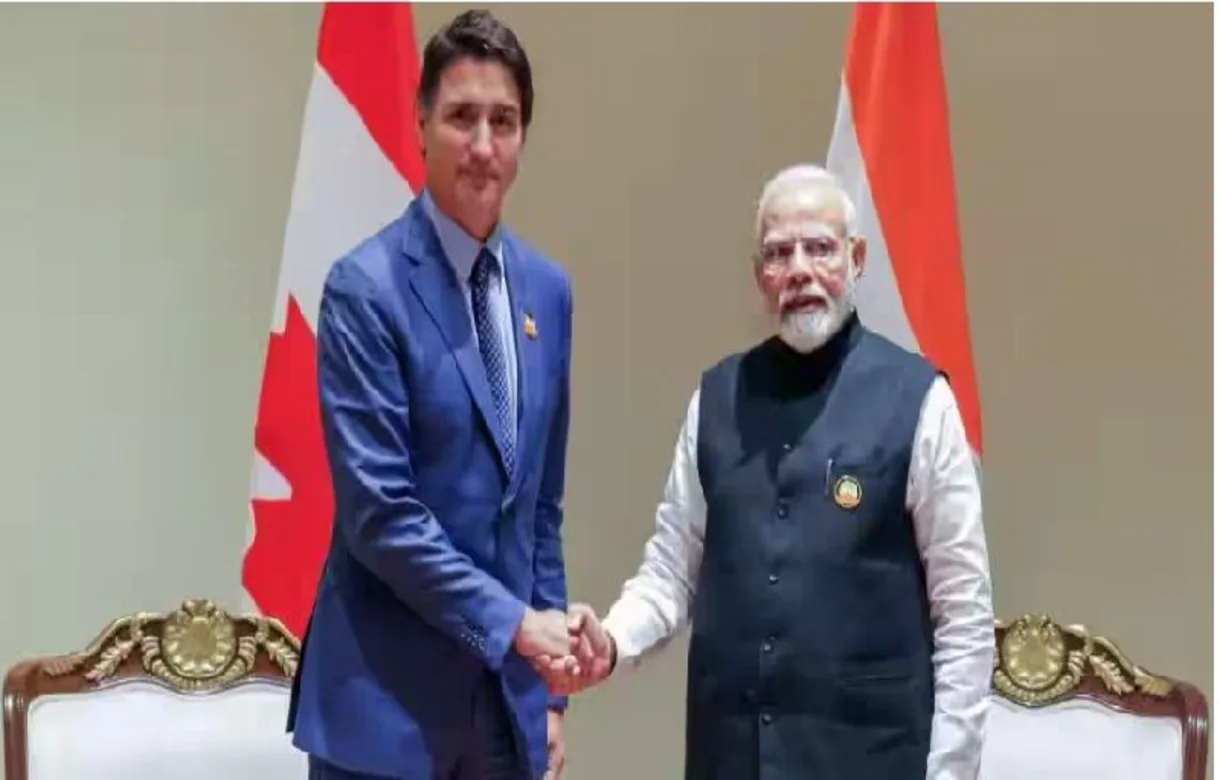

 India News7 hours ago
India News7 hours ago
 India News8 hours ago
India News8 hours ago
 LATEST SPORTS NEWS7 hours ago
LATEST SPORTS NEWS7 hours ago
 India News7 hours ago
India News7 hours ago
 Latest world news1 hour ago
Latest world news1 hour ago
